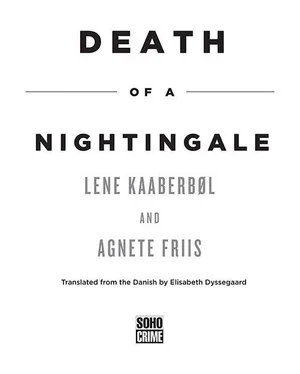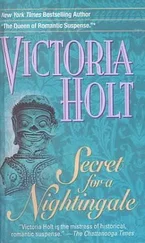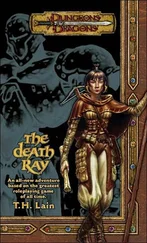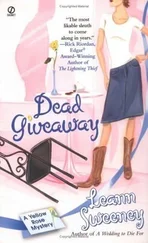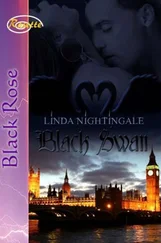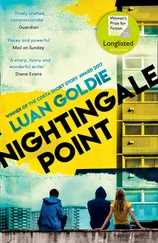Lene Kaaberbol - Death of a Nightingale
Здесь есть возможность читать онлайн «Lene Kaaberbol - Death of a Nightingale» весь текст электронной книги совершенно бесплатно (целиком полную версию без сокращений). В некоторых случаях можно слушать аудио, скачать через торрент в формате fb2 и присутствует краткое содержание. Год выпуска: 2013, ISBN: 2013, Издательство: Soho Crime, Жанр: Старинная литература, на английском языке. Описание произведения, (предисловие) а так же отзывы посетителей доступны на портале библиотеки ЛибКат.
- Название:Death of a Nightingale
- Автор:
- Издательство:Soho Crime
- Жанр:
- Год:2013
- ISBN:1616953047
- Рейтинг книги:5 / 5. Голосов: 1
-
Избранное:Добавить в избранное
- Отзывы:
-
Ваша оценка:
- 100
- 1
- 2
- 3
- 4
- 5
Death of a Nightingale: краткое содержание, описание и аннотация
Предлагаем к чтению аннотацию, описание, краткое содержание или предисловие (зависит от того, что написал сам автор книги «Death of a Nightingale»). Если вы не нашли необходимую информацию о книге — напишите в комментариях, мы постараемся отыскать её.
Death of a Nightingale — читать онлайн бесплатно полную книгу (весь текст) целиком
Ниже представлен текст книги, разбитый по страницам. Система сохранения места последней прочитанной страницы, позволяет с удобством читать онлайн бесплатно книгу «Death of a Nightingale», без необходимости каждый раз заново искать на чём Вы остановились. Поставьте закладку, и сможете в любой момент перейти на страницу, на которой закончили чтение.
Интервал:
Закладка:
In reality, he had made it no farther than to the GPU’s headquarters in Sorokivka, where he had been held in the cellars for a while before finally being tied to a pole and shot. That had happened yesterday. Butka was sure, he said, because he had seen it with his own eyes, even though it had been hard for him to recognize Father. He had been terribly thin after just three weeks in prison. But they had shouted his name, Andreij Trofimenko, counterrevolutionary and Former Human Being, and he had confessed to all the charges, they said.
Mother cried, and Butka stood awkwardly in the living room with his fur hat in his hands, but Olga refused to believe it.
“Prove it,” she said softly. “Prove that it is Father who is dead.”
It sounded so terrible when she said it. Real.
At first Butka looked a bit uncertain, but then he seemed to remember something, dug into his goatskin coat and pulled out Father’s little red party book. He handed it to Mother with a solemn expression.
“They let me bring this to you,” said Butka softly. He neglected to mention the widow. She was gone now, and it was as if she had never existed. “It was the only thing he thought to take with him when they came to get him.”
Mother opened the book with shaking hands, then let it drop to the floor. It remained there until late in the evening when Olga had surreptitiously picked it up. Small, dark flecks of blood covered the book’s cover like freckles. Inside was a picture of Father with his hair combed back and a steady gaze that looked as if it was focused on a finer, better future—the one he had once said he would build with his own hands.
Olga had hidden the party book under her pillow. She could feel it as she lay here now thinking about hunger, fear and death, and what had been the worst for Father as he hung there on the pole and waited for the bullets to drill through his body. She was too tired to cry anymore. She turned over again in the dark and bumped into Oxana’s knee under the blankets. Oxana moved a bit in her sleep, but her breathing was heavy and calm. The familiar sweet scent of her breath, skin and hair surrounded her, and suddenly made it difficult for Olga to breathe.
Oxana had cried today too; big, shiny tears had run from her cornflower-blue eyes. She was the one who had opened the door and received condolences from the few neighbors who had dared to come by in the course of the day. Jana’s mother had arrived with vegetable soup and freshly baked bread, and Oxana had answered virtuously, had carried the soup to the table and offered tea from the samovar and had drip-drip-dripped her tears into the tea and across the floor.
Olga breathed carefully through her mouth and turned away from the spicy scent of thyme and garlic and warm girl-body. She tried not to touch Oxana, not to think about her. Not to think about Father and not to think about Grandfather, who had been lying there for three weeks after the accident with his leg, unable to either live or die. He had become feverish and had drunk a lot of vodka, and in his fever had staggered over to the barn to brain the cow so the Reds wouldn’t get her. Poor Zorya had been hit with the sledgehammer first across one knee, which had collapsed, and then twice on her broad, quivering neck, until he had finally managed to aim at her forehead and finish her off. The farm and the tools had gone to the state, but they had eaten meat at Grandfather’s funeral.
Don’t think, she told herself.
She tried to just lie there, completely still, and listen to the wind that grabbed hold of the house and made the woodwork sing and creak under the sky, which Olga knew was black and cloudless and filled with stars.
“Don’t be angry at Uncle Stalin,” Oxana had said. “The Revolution demands sacrifices from us all.”
“Is she difficult?” Mikael Nielsen had asked when Søren turned over the watch to him back at the house on Kløvermosevej.
“She has actually been pretty cooperative,” Søren had assured him. Now he wondered whether he should have warned Nielsen about Nina’s oddities anyway. Small talk and bedside manners were not Nielsen’s forte, nor did his restless nature adapt particularly well to the long, dull hours of surveillance during which nothing happened. But he was Søren’s man, and he was available and willing to sacrifice his Sunday, and thanks to all his gadgetry, he saw pretty much everything that moved, even though he might not look particularly alert. He had immediately distributed a number of small webcams both indoors and outside, and if Søren knew him at all, he was currently engaged in tracking them all simultaneously on his self-designed tablet computer, colloquially known as The Gizmo—possibly playing Battleship or indulging in a game of chess at the same time.
Søren would have preferred to be there himself. But he needed to talk with Babko, and in spite of the new era of bicultural trust and peace, he had no intention of letting the Ukrainian anywhere near Rina. Apart from Søren’s own people, at this moment only Heide and Heide’s boss knew where the girl was. He had promised to bring both Nina and Rina in for a more thorough interview Monday morning if the girl’s health allowed.
Babko had shaved and generally looked fresher and sharper today—Søren was in no way sure that the same thing could be said about him.
“I managed to get through most of it,” he said, poking the substantial pile of papers. The printer had been going for almost two hours; it wasn’t among the fastest, but it had been easier than going to Søborg to use the one at the office. He was still better at reading things on paper, and when he was also faced with a linguistic challenge, he needed all the help he could get. His reading speed had definitely not been optimal.
“Did you find it interesting?” asked Babko.
“Much of it, yes.”
Pavel Doroshenko had been born and had grown up in a little village south of Kiev. His father was a dairy worker, and his mother had been employed at the same dairy for most of her adult life. The most unusual thing about the family was the mother’s background. She was originally from Galicia in eastern Ukraine, one of the local minority of ethnic Germans who had been blown hither and thither by various national and military storms around the time of the Second World War. First the area had been under Polish rule, then the Soviets came, then the Germans, with a short-lived attempt to create an independent Ukrainian state, and finally the area had again been absorbed by the Soviet Union. Galicia’s history was more turbulent than most, and Søren wondered how it had shaped Pavel’s mother.
“You wrote ‘Mama’s boy’ in your notes,” said Søren. “Why?”
“She died in nineteen ninety-seven, so it’s an entirely secondhand impression. I spoke with the father; he is still alive but hadn’t been in contact with Pavel for several years. The marriage wasn’t exactly harmonious. It’s a small town, everybody knows everybody’s business, and if Pavel was a ladies’ man, he didn’t get it from strangers.”
“But they didn’t get divorced?”
“No. You’re familiar with the propiska system?”
“Yes.” During the Soviet era, one needed an internal passport, a propiska, to live in a certain place. The propiska simultaneously served as right of residence to a specific address. “Is that still in use in Ukraine?”
“It was officially judged to be unconstitutional in two thousnd and one, but not a lot changed. So with certain modifications, yes. The short answer is that even if Pavel’s parents had divorced, they couldn’t just split up. At least not without exchanging the propiska on their little house for two propiskas to much less desirable apartments. Pavel’s mother defended her right to the house with tooth and claw, understandably so. The result was that they lived like a dog and a cat. Funnily enough, most of the villagers sided with the husband, perhaps because her Ukrainian was pretty poor. She’d grown up with German and Polish, of course. Pavel was called Niemcy, ‘the German,’ in school, or ‘the Nazi brat’ if they were being particularly cruel. And apparently they spoke German together, his mother and he. She called him Paul. So you could say he grew up strongly motivated to succeed. He was going to show them all.”
Читать дальшеИнтервал:
Закладка:
Похожие книги на «Death of a Nightingale»
Представляем Вашему вниманию похожие книги на «Death of a Nightingale» списком для выбора. Мы отобрали схожую по названию и смыслу литературу в надежде предоставить читателям больше вариантов отыскать новые, интересные, ещё непрочитанные произведения.
Обсуждение, отзывы о книге «Death of a Nightingale» и просто собственные мнения читателей. Оставьте ваши комментарии, напишите, что Вы думаете о произведении, его смысле или главных героях. Укажите что конкретно понравилось, а что нет, и почему Вы так считаете.
